Dr. Brown's Psych Commute
Thoughts on psychiatry, medicine, neuroscience, artificial intelligence, problem-solving, and decision-making from a practicing physician, psychiatrist, and neuroscientist recorded during his commute from work. brandonbrownmd.substack.com
#10 - Should I Let Them Go? Clinical Decision-Making in Psychiatry
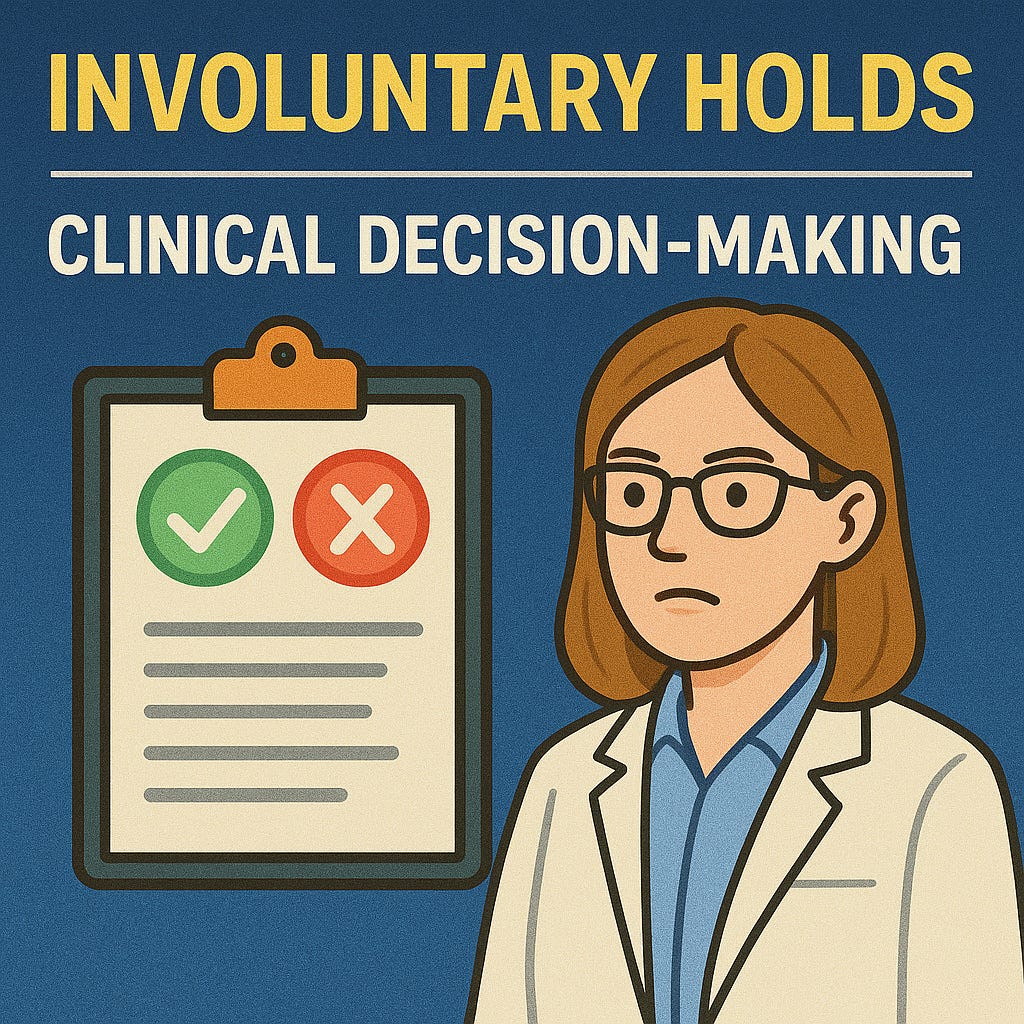
In this episode, I break down how psychiatrists make clinical decisions especially in regards to involuntary holds when the clinical situation is not entirely clear. Drawing on real inpatient cases, I walk through how to use a “best-case vs. worst-case” framework to guide safe, defensible decisions. Please note this is for general education only and is not specific medical advice. Rules around involuntary holds and commitment vary significantly from state to state so you will need to make decisions with your specific state’s legal standards in mind.
This is a public episode. If you would like t...
#9 Process-Based Formulation: Seeing Psychiatric Disorders Through Causal Networks
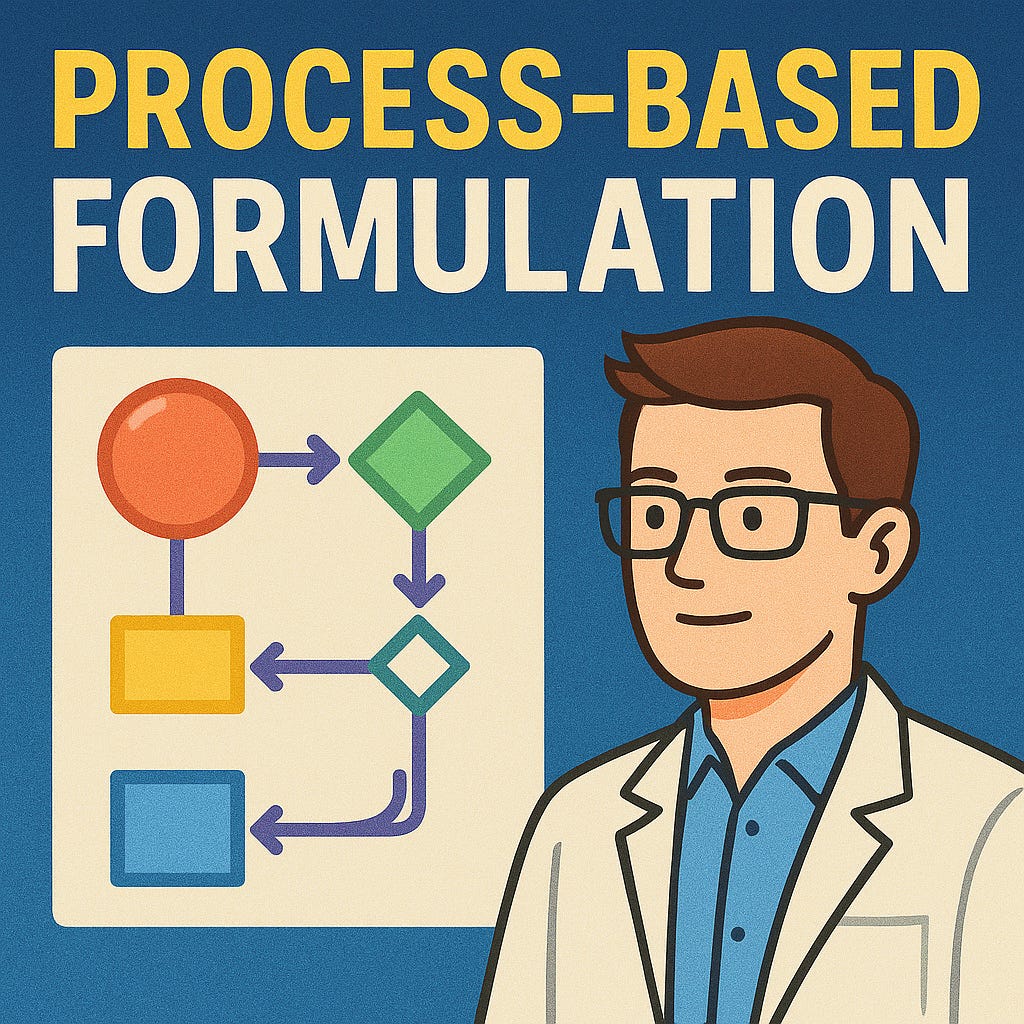
In this episode I introduce what I call process-based formulation, a way of understanding difficult, “treatment-resistant” presentations by mapping causal loops and feedback processes, rather than hunting for a single diagnosis or cause. I contrast the classic medical model (differential diagnosis → one primary etiology → one treatment) with situations where suffering is maintained by self-perpetuating systems, like the simple loop of caffeine → insomnia → fatigue → more caffeine. I illustrate this with a real case of “treatment-resistant depression” that finally remitted when I stopped thinking in terms of labels and instead targeted a specific feedback loop, leading to an unconventional treatment.
This is a...
#8 - Do Antidepressants Work in Bipolar Depression?
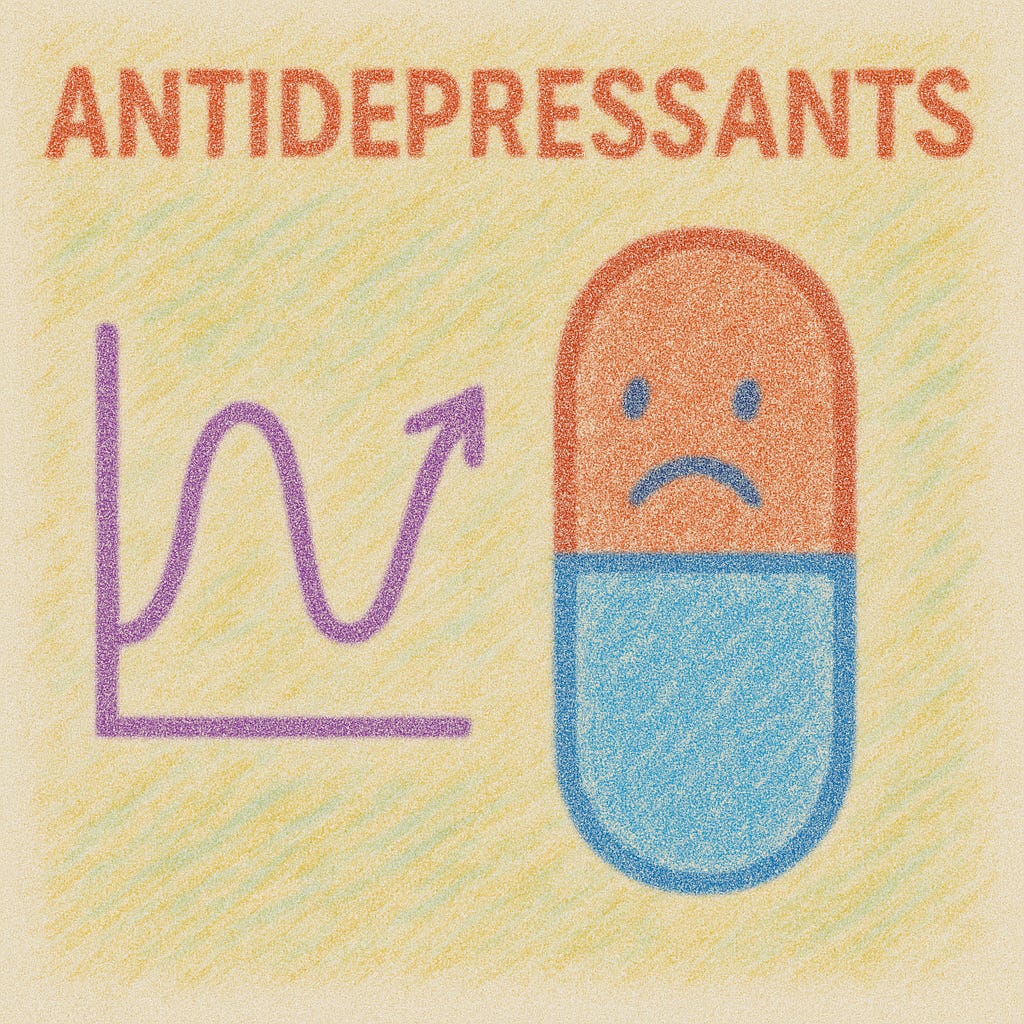
In this episode of Dr. Brown’s Psych Commute, I opine on a question that bears a lot of disagreement: do antidepressants actually work in bipolar depression, or are they useless or even dangerous?
I walk through the two main camps you’ll hear in psychiatry:
* Those who argue antidepressants don’t work at all in bipolar depression and only increase the risk of mania, mixed states, and rapid cycling.
* Those who believe antidepressants can be useful when paired with a mood stabilizer or antipsychotic, but should never be used as monotherapy in known...
#7 - Interventional Psychiatry: From TMS and ECT to Ketamine, VNS, and Beyond
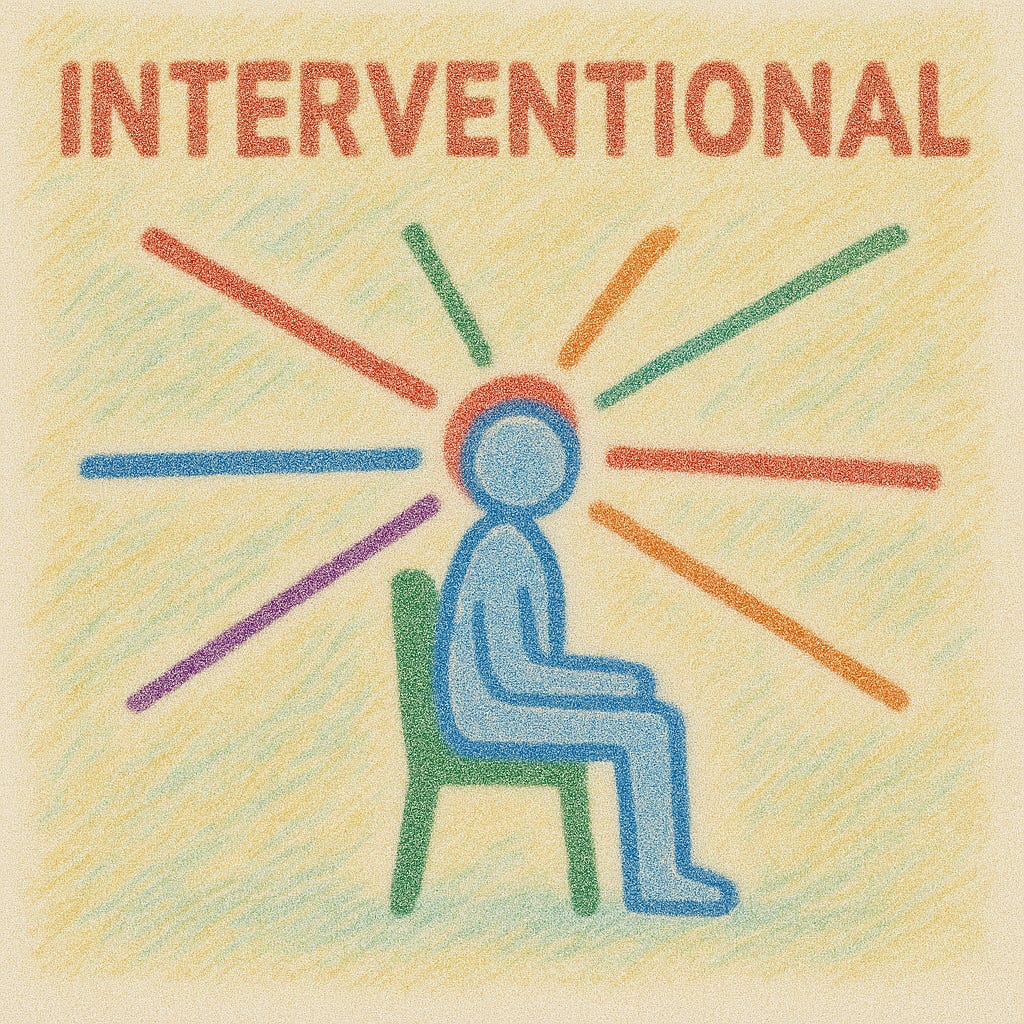
In this episode I step back from ECT specifically and give a broad, clinician-level overview of interventional psychiatry as a whole: what it is, how it differs from conventional psychiatry, and where the field may be going in the next decade.
I start by contrasting conventional psychiatry with what I propose as a working definition of interventional psychiatry:
An emerging subfield that encompasses invasive or non-standard medication delivery routes (like IV ketamine) and medical procedures designed to directly modulate neural circuits implicated in psychiatric disorders.
We then discuss the established interventional psychiatry treatment...
#6 - Unipolar versus Bipolar Depression
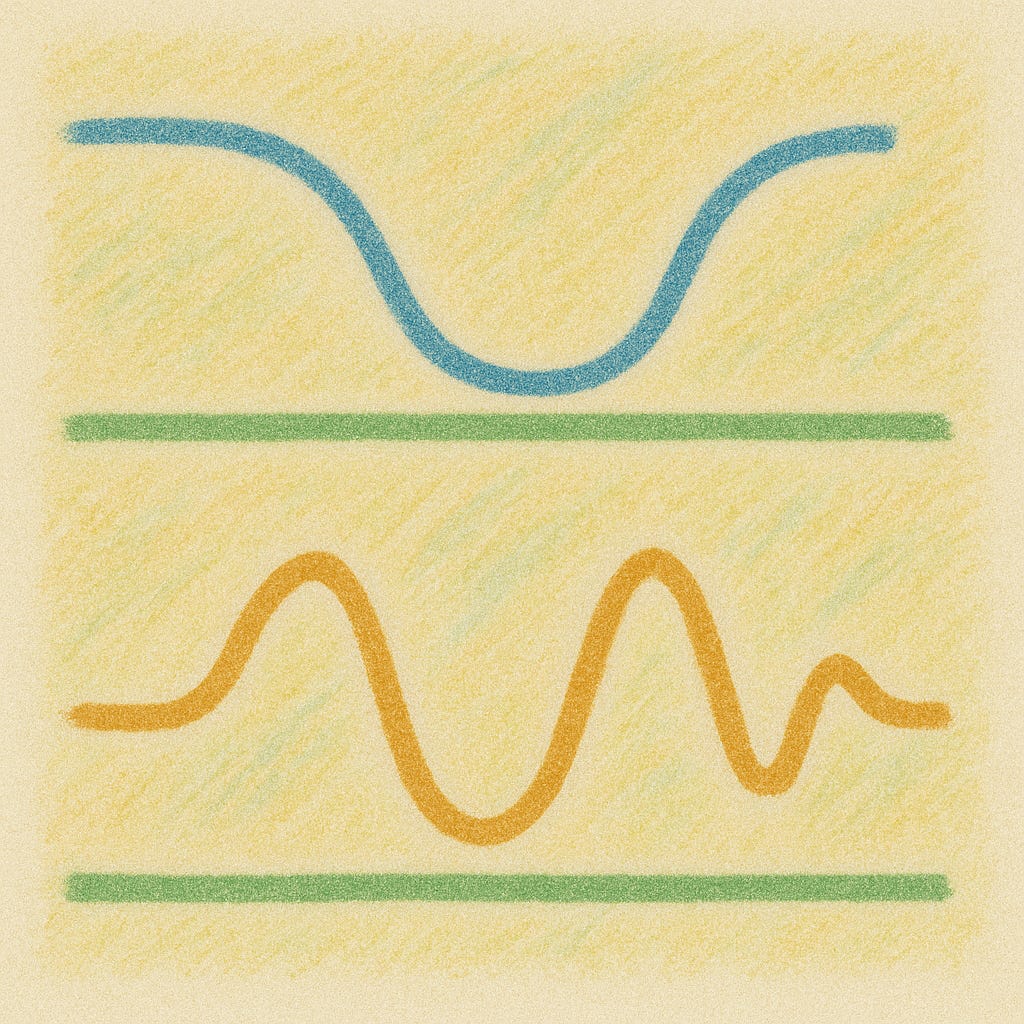
I cover a significant challenge in clinical psychiatry: distinguishing and treating unipolar vs. bipolar depression. A recent inpatient case prompted me to revisit the question of whether an antidepressant-induced manic episode could have been predicted, and more broadly, whether our traditional diagnostic split makes sense at all.
I walk through a real-world clinical scenario: a patient with many years of recurrent depressive episodes, no clear history of hypomania or mania, and no obvious risk factors, who flipped into a manic episode after being started on an antidepressant. I explore why the DSM categorization often collapses under closer...
#5 - ECT Part 3: Dosing, Parameters, and Electrode Placement Explained
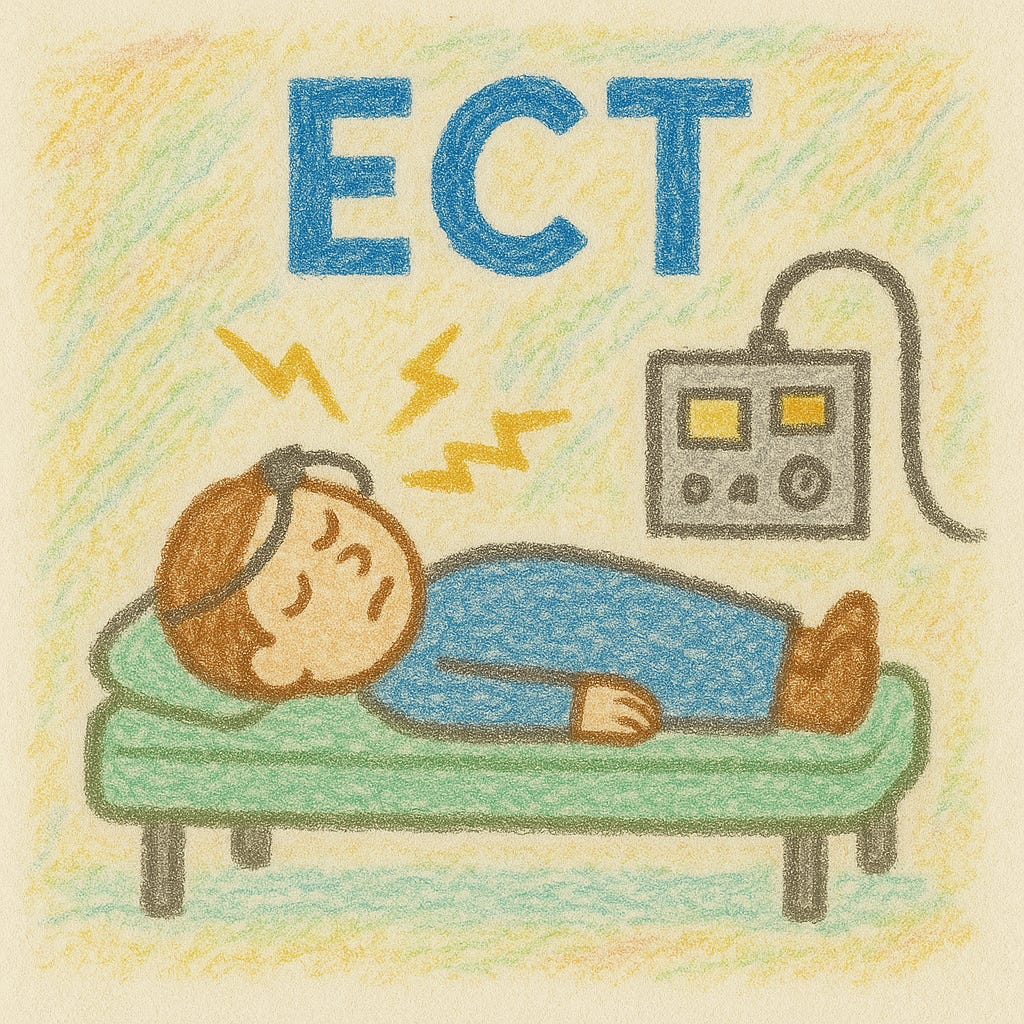
In this third episode on electroconvulsive therapy, I dive into the details of how ECT is actually delivered at the machine level.
I start by breaking down what the ECT device is really doing: delivering bidirectional square-wave pulses defined by four key parameters pulse width, frequency, train duration, and amplitude. I explain how these combine into total charge (in millicoulombs), how that relates to device “percent intensity,” and why ECT machines deliver far less energy than a typical cardioversion.
From there, I walk through:
* Brief vs ultra-brief pulse width (≥0.5 ms vs
#4 - ECT Part 2: Start-to-Finish: How I Evaluate, Prepare, and Deliver Electroconvulsive Therapy
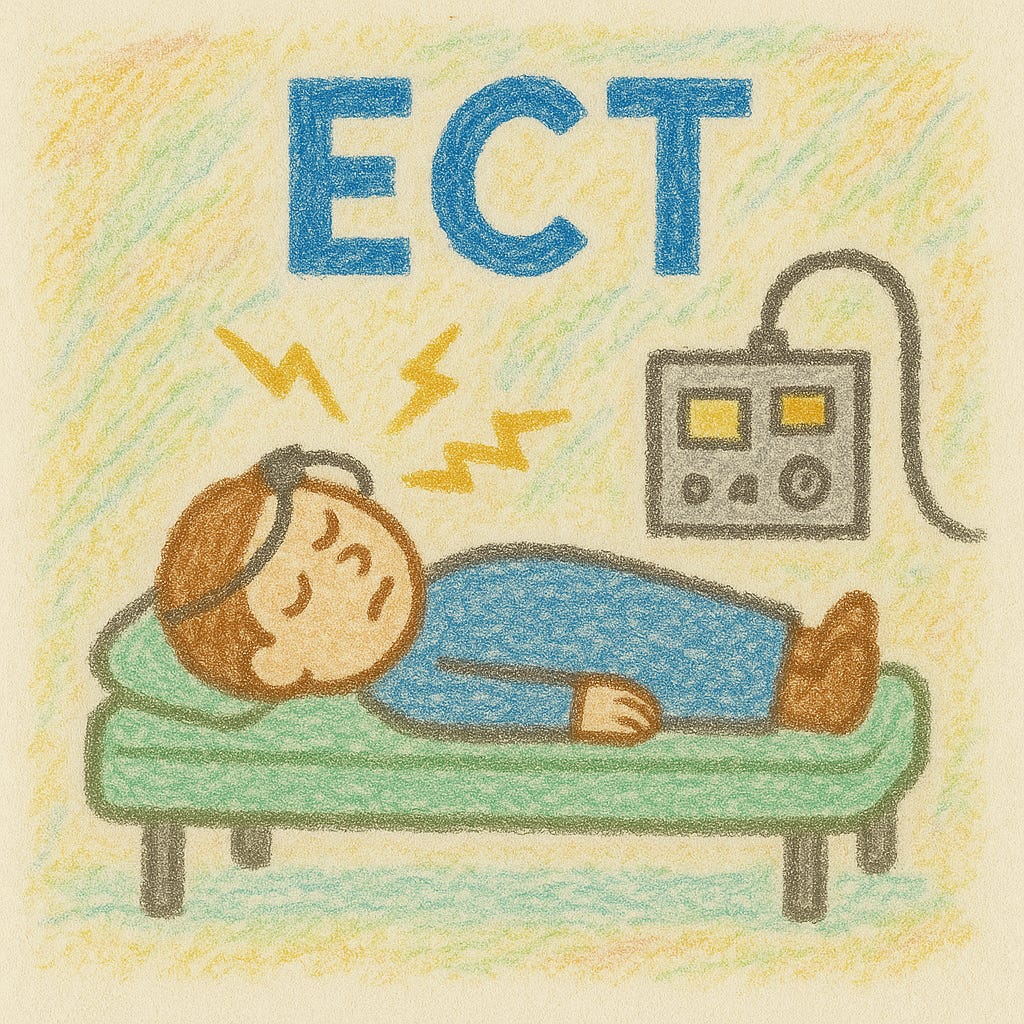
I give a full start-to-finish overview of how electroconvulsive therapy is delivered in real clinical practice. In the prior ECT episode, I focused on key concepts in ECT. Here, I zoom out and walk through the actual workflow: consultation, medical clearance, informed consent, anesthesia, seizure monitoring, and post-procedure recovery.
I begin at the referral stage: how an ECT psychiatrist evaluates whether a patient has an ECT-responsive condition (severe unipolar depression, bipolar depression, mania, or catatonia), and how we assess medical risk. I explain what “pre-procedural clearance” really entails, when internal medicine is involved, and how risk tolerance diff...
#3 - Electroconvulsive Therapy (ECT) Part 1: History, Mechanism, Indications, and Safety
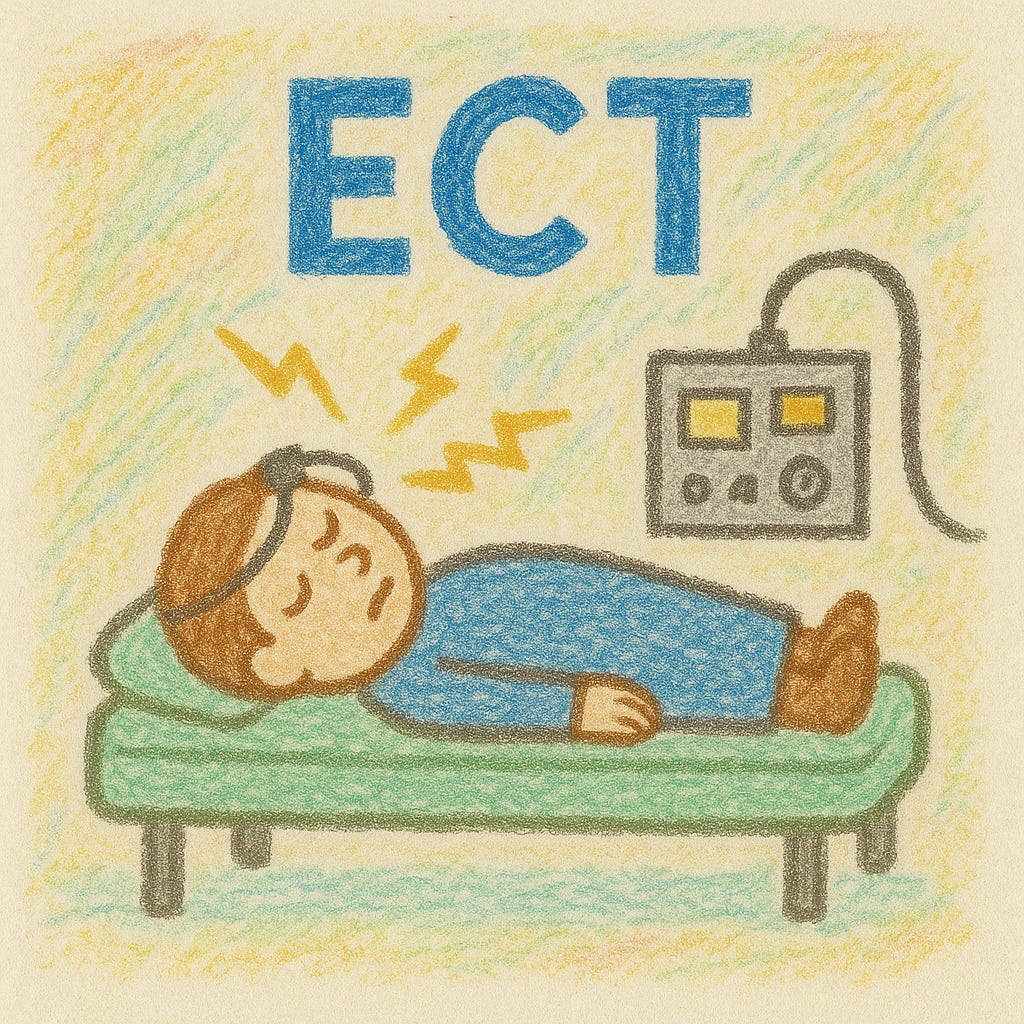
In this first installment of the ECT series, I walk through the foundations of electroconvulsive therapy from the perspective of someone who practices it regularly in a busy clinical service. Despite decades of stigma and misunderstanding, ECT remains the most effective treatment in psychiatry for several severe and life-threatening conditions, and modern research has repeatedly demonstrated its safety.
I start with a brief history, from ECT’s origins in 1938, to how the modern procedure works: inducing a generalized tonic–clonic seizure under general anesthesia using a short electrical stimulus. I also review what we know from animal stud...
Episode 2 - Treatment-resistant depression
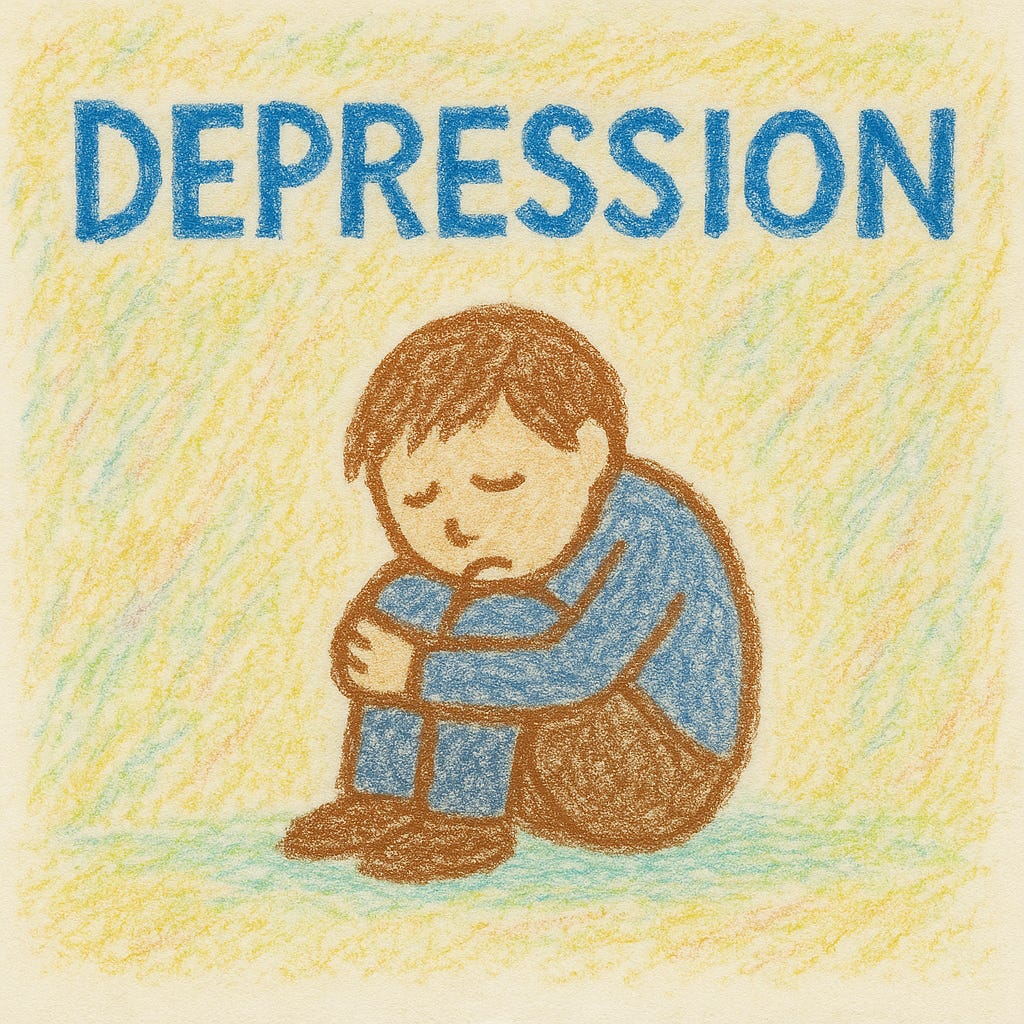
I take a closer look at treatment-resistant depression (TRD), what the term actually means, why it’s far less useful than people think, and how I approach severe depressive episodes in real practice.
Most definitions of TRD frame it as unipolar major depression without psychotic features that has failed to remit after two adequate trials of first-line antidepressants. But as I discuss in this episode, this “two-step failure” model doesn’t tell us anything meaningful about biology, prognosis, or subtype. It simply reflects that our first-line medications (SSRIs, SNRIs, bupropion, mirtazapine) are not particularly effective to begin with. Da...
Episode 1 - Catatonia - Psychiatry's most interesting condition

In this episode of Dr. Brown’s Psych Commute, I break down one of the most commonly missed syndromes in acute psychiatry: catatonia. Although many clinicians think of it as rare, catatonia occurs in roughly 10–20% of psychiatric inpatients, and in my day-to-day practice, that statistic holds up.
I walk through the clinical signs that often get overlooked, how to use the Bush–Francis Catatonia Rating Scale, and why a proper lorazepam (Ativan) challenge remains the fastest and most reliable diagnostic tool. We also cover IV vs IM vs PO dosing, the timelines for reassessment, and why lorazepam’s pharma...
Introduction to Dr. Brown's Psych Commute
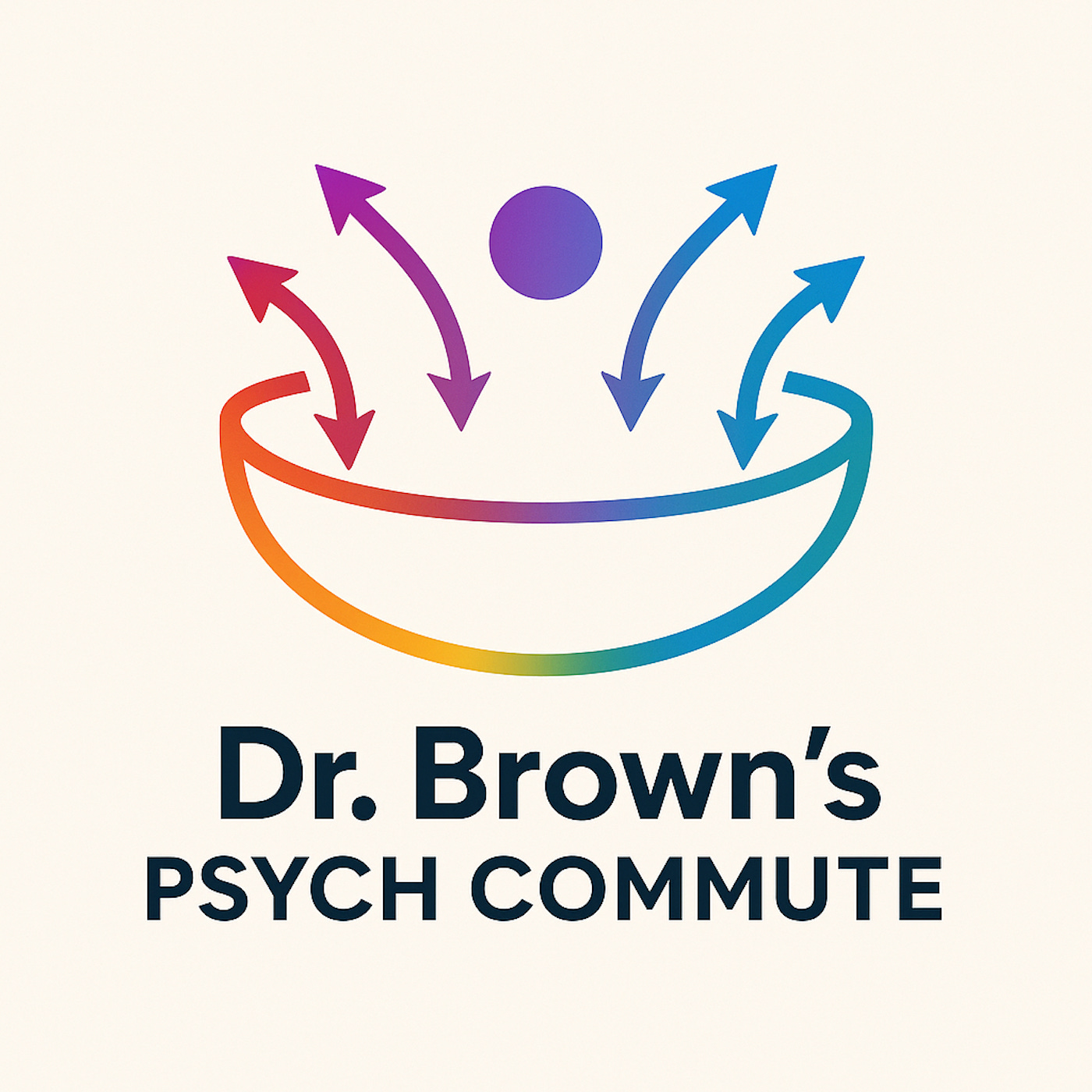
In this short introductory episode, I share what this new psychiatry podcast is all about and why I’m starting it. I’m Dr. Brandon Lee Brown, an inpatient psychiatrist in Houston with a background spanning outpatient and inpatient care, interventional psychiatry (TMS, IV ketamine, intranasal esketamine, ECT), and psychotherapy.
My goal is simple: to record brief, high-yield reflections during my commute to or from work, covering cases, clinical patterns, and lessons I wish someone had told me when I was a trainee. Episodes will focus primarily on psychiatry, but will often touch on medicine more generally, neur...
